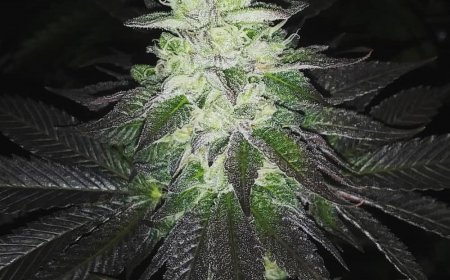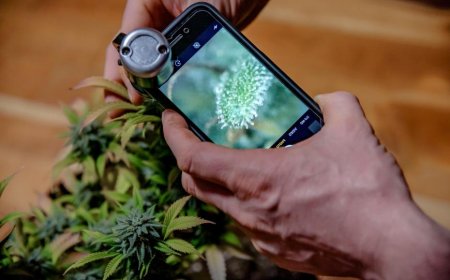What is the Reishi Mushroom?
Learn "What is the Reishi mushroom", its history, effects, safety and benefits in our comprehensive guide.
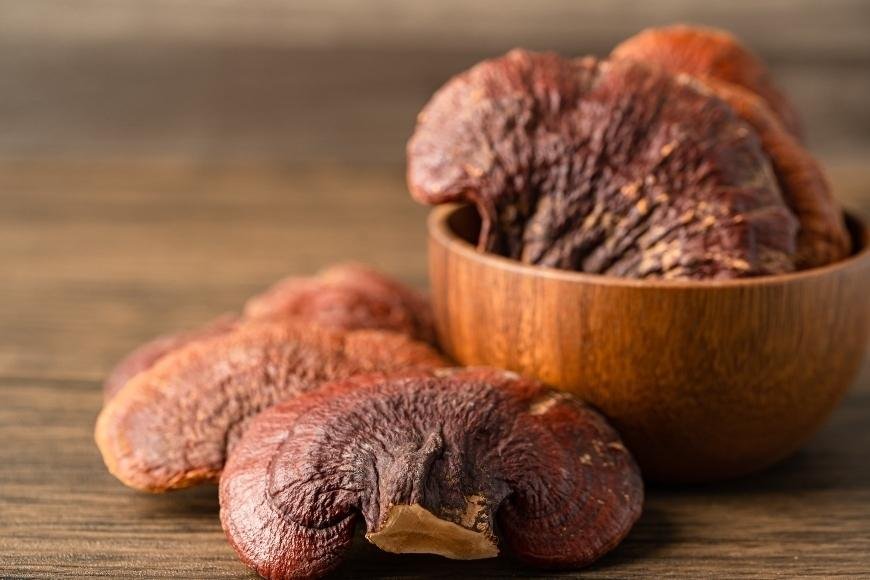
What is the Reishi mushroom? This question has intrigued many young adults, particularly those with an interest in recreational drug use and cultivation. The Reishi mushroom, also known as Ganoderma lucidum, is not your typical psychedelic fungus but a medicinal marvel treasured for centuries.
Diving into its history reveals fascinating tales of ancient healing practices and longevity secrets. As we explore the effects of taking reishi mushrooms, you'll understand why this 'mushroom of immortality' holds such high esteem in traditional medicine.
Still, it's essential to be aware of the potential drawbacks and security concerns before beginning any new health plan. So what exactly are the benefits and risks associated with reishi mushrooms? Let's delve deeper into understanding this remarkable organism.
Table of Contents:
- What is Reishi Mushroom?
- The Reishi Mushroom: A History of Health Benefits
- The Power of Reishi Mushrooms
- Reishi Mushroom Use: Potential Side Effects
- Is Reishi Mushroom Safe?
- Conclusion
What is Reishi Mushroom?
The Reishi mushroom, also known as Ganoderma lucidum or Lingzhi, is a type of fungus that grows in hot and humid locations in Asia. It's been used for centuries in traditional Asian medicine due to its health benefits.
Unlike other mushrooms, Reishi doesn't grow on trees or logs. Instead, it prefers deadwood or tree stumps where there are plenty of nutrients available for growth. This unique fungus has a shiny, hard exterior and is usually red but can come in other colors like black or green.
Reishi has gained popularity among young adults for its potential medicinal properties. It's been infused into teas, coffees, and even skincare products. Some studies suggest that Reishi may have anti-inflammatory and immune-boosting effects, making it a popular choice for those looking to improve their overall health.
The Reishi Mushroom: A History of Health Benefits
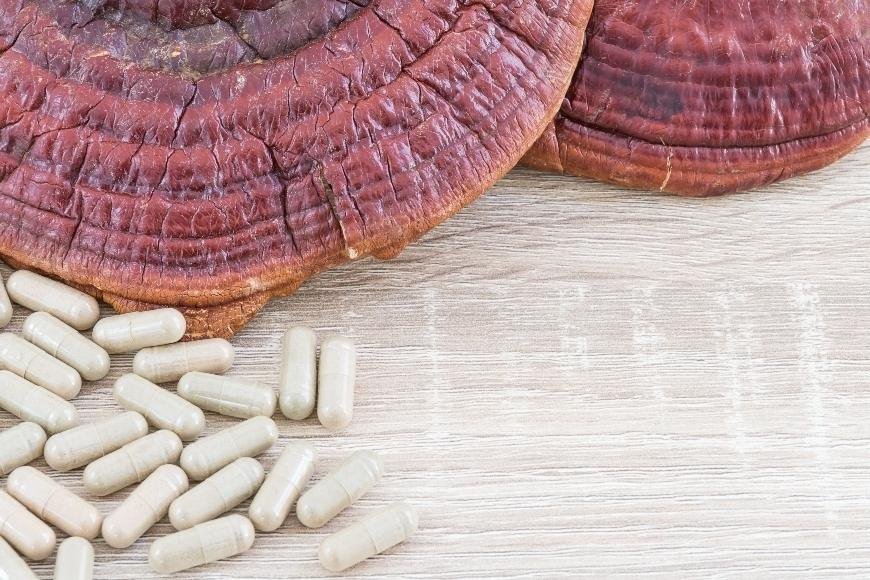
Reserved for royalty and nobility, it was believed to bestow longevity and improve spiritual energy. Its earliest recorded use dates back to the Han Dynasty, where it was ranked highest among superior class herbs for promoting life expectancy.
Monks in Asia used Reishi mushrooms during meditation practices, believing it could help achieve tranquillity and balance. In Japan, it was embraced under Kampo Medicine, their version of traditional herbal medicine. While modern science may not fully endorse all historical claims, research suggests potential therapeutic effects including immune modulation and anti-cancer properties.
Today, enthusiasts around the world cultivate Reishi mushrooms at home for their medicinal value and unique growth patterns. Whether you're seeking to improve your health or add to your mycologist's collection, the Reishi mushroom is a fascinating addition.
The Power of Reishi Mushrooms
For many years, Reishi mushrooms have been valued for their beneficial effects on health.
Potential Health Benefits
- Boosts the Immune System: Research suggests that Reishi mushrooms can influence the activity of white blood cells, which are critical parts of your body's immune defense mechanism.
- Fights Fatigue and Depression: The polysaccharides found in Reishi mushrooms could fight fatigue and improve quality of life. They might also help reduce depression symptoms by altering inflammation pathways in the brain.
- Aids Heart Health: Some studies have shown that reishi mushroom can increase "good" HDL cholesterol and decrease triglycerides levels.
Note: While these potential benefits sound promising, more extensive human studies are needed to confirm these effects on everyone who consumes this fungi regularly.
Cognitive Effects
In contrast to popular psychedelic substances like psilocybin (magic) mushrooms or LSD, Reishi does not induce hallucinations or altered states of consciousness - so don't expect any mind-bending trips here. Instead, their main cognitive benefit lies within their potential neuroprotective properties.
Some preliminary research indicates they may protect against neurological diseases like Alzheimer's disease but again further research is required here too. Remember though unlike recreational drugs where immediate effects are felt after consumption; beneficial effects from medicinal herbs usually require consistent use over longer periods. So patience will be key.
Mushroom enthusiasts often consume reishis by brewing them into a tea or taking them as supplements. Though generally safe for most, some may experience side effects such as upset stomach or allergies when consuming reishi mushrooms; thus, consulting a healthcare provider before beginning any new supplement regimen is advised.
It's always recommended to consult with a healthcare provider before starting any new supplement regimen especially if you have underlying health conditions or take other medications.
Overall, Reishi mushrooms are a powerful natural remedy that can provide a range of health benefits. Why not experiment to see what the potential effects of Reishi mushrooms could be?
Reishi Mushroom Use: Potential Side Effects
While the Reishi mushroom has many benefits, it's important to be aware of its potential side effects. Mild symptoms may include dryness in the mouth, throat and nasal area as well as digestive issues; however, these are typically seen with high doses of Reishi mushrooms taken over a long period.
It's worth noting that these side effects typically occur when consuming high doses of Reishi mushrooms over a long period. Still, people's responses to such substances may differ significantly; thus, a minor reaction for one individual could be more extreme in another.
Potential Allergic Reaction
In rare cases, individuals may have an allergic reaction to Reishi mushrooms. Symptoms could range from skin rashes and itchiness to difficulty breathing in extreme situations. If you notice any signs of an allergic response after consuming this mushroom, it's crucial to seek immediate medical attention.
Interactions with Other Medications
Another potential risk associated with using Reishi mushrooms is their interaction with other medications. For instance, they can enhance the effect of blood-thinning drugs, which could increase bleeding risks. They're also known to lower blood pressure levels and should be used cautiously by those already on medication for hypertension.
Liver Damage Concerns
A few studies suggest that prolonged usage at high dosages might cause liver damage - though such instances are extremely rare. One study found a case where a woman developed serious liver damage after taking reishi extract continuously for six months but fully recovered upon discontinuation.
Important Notes:
- If you're pregnant or breastfeeding, it's advisable not to consume Reishi mushrooms as there isn't enough reliable information about their safety under these conditions.
- If you're due for surgery, avoid using Reishi mushrooms two weeks before, as they slow down blood clotting, making bleeding control difficult during and after surgery.
- Diabetes patients need to exercise caution as well because Reishi mushrooms decrease sugar levels, which could interfere with diabetes medication.
Is Reishi Mushroom Safe?
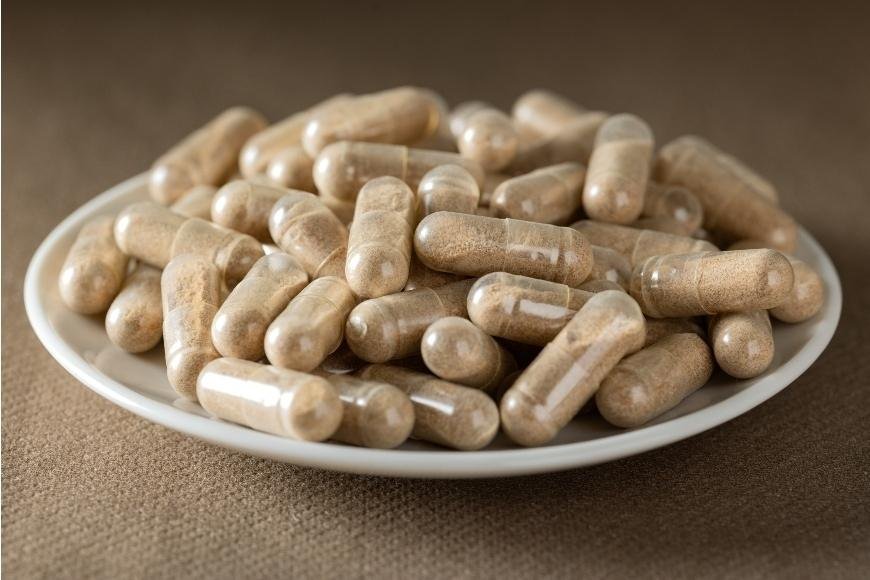
When it comes to using substances like the Reishi mushroom, safety is key. So, is it safe to consume?
For the most part, Reishi mushrooms are considered safe. Mild and transient reactions such as dryness of the mouth or throat, itching, rash, digestive problems and looseness of the bowels have been reported. In certain circumstances, prolonged use of Reishi mushrooms (over a year) has been associated with liver damage. Before taking Reishi mushrooms, it's best to consult your healthcare provider if you are pregnant or breastfeeding, have low blood pressure, suffer from a bleeding disorder, will undergo surgery soon, or take medication for high blood pressure or diabetes.
Despite these precautions, Reishi mushrooms have been used for centuries across different cultures around the world and are generally deemed safe by experts in traditional medicine. If you decide to include them in your diet or health regimen, start with small doses and gradually increase intake while monitoring your body's reaction.
To ensure safety, source Reishi mushrooms only from reputable suppliers who guarantee quality control during cultivation. Poorly grown products sold at cheaper prices can be contaminated by harmful substances. The FDA provides tips on buying food online, which could be helpful when purchasing Reishi mushrooms too.
Remember, natural remedies like Reishi offer numerous benefits but are not meant to replace conventional medical treatments. They should complement them under proper guidance provided by trained professionals well-versed in both modern science and ancient wisdom.
Conclusion
Reishi Mushroom: Used for centuries in traditional medicine, the Reishi mushroom has gained popularity for its potential health benefits, including boosting immunity and reducing stress levels.
Potential Side Effects: While generally safe when taken in moderation, the Reishi mushroom can cause upset stomach or allergic reactions, so it's best to consult with a healthcare professional before adding it to your routine.
Health Benefits: Studies suggest that the Reishi mushroom may have anti-inflammatory and antioxidant properties, and could potentially help with conditions such as high blood pressure and liver disease.
Source of Beta-Glucans: The Reishi mushroom is a rich source of beta-glucans, which are believed to have immune-boosting effects and may help reduce the risk of certain types of cancer.
Not a Miracle Cure: While the Reishi mushroom has potential health benefits, it's important to remember that it's not a miracle cure and should be used in conjunction with a healthy lifestyle and medical treatment when necessary.
Quality Matters: When purchasing Reishi mushroom supplements, it's important to choose a reputable brand that uses high-quality ingredients and has undergone third-party testing for purity and potency.
Consult a Professional: If you're considering adding Reishi mushroom to your routine, it's always best to consult with a healthcare professional to ensure it's safe and appropriate for you.

